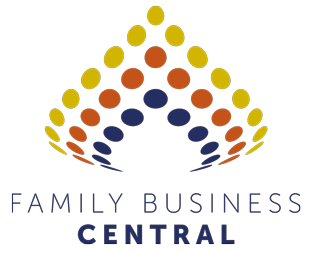
Succession and Fairness
Reasons for conflict in family business
One of the biggest concerns for family businesses is conflict within the family, whether this is over business or family issues. The concerns families have are real, and if conflict is not managed, it has the potential to do enormous damage to the family and the business.
However, a great deal that can be done to manage and minimise any potentially damaging conflict. If a family business takes a few key steps, conflict, while it will never disappear completely, can be managed within the family and the business. The aim is that both family and business thrive, grow, and, most importantly, the family does not break the Christmas Dinner Rule.
Let’s take a look at the most common areas where conflict in family businesses can occur.
Normally, when a family is experiencing conflict, they get experts like us involved. And yes, we can help a great deal. Our mediation services for family businesses offer a range of proprietary methods and techniques that can transform and reduce conflict.
When there are problems within a family business, there is often a root cause that needs to be uncovered. These types of conflict include:
- Disagreement over who is responsible for what
- Conflict over the direction of the business
- Confused expectations with people not being aware or sure of what is expected of them
- Conflict over issues that come from the past
- A grievance around fairness in how things get done or who gets what
- Misunderstandings around the agreed rules for how things are done in the business, from who works in the business to how much they are paid through to expectations around behaviour.
To really get to the root cause of many of these conflicts, long term actions, discussions and thinking by the family are far more effective in reducing, if not eliminating some of this type of conflict within the family.
A cause for conflict: no succession plan
What long term actions and decisions am I talking about?
I’m talking about families sitting down and discussing the key issues around how the family interacts with the business, including what does the future of the business look like? This can be summed up in one word, succession.
Addressing succession as early as possible reduces the worry and uncertainty that often drives conflict in family businesses. It provides family members with clear goals and expectations to work towards. This is particularly important when there is strong Founders Syndrome as it’s common for the current generation to worry about what is going to happen to the business and their role in it. And, similarly for the Senior Generation, who may worry they’re about to be ‘put out to pasture’. This is the perfect fertile breeding ground for a huge conflict between the two generations—all for no real reason.
Reducing the conflict
If a family can sit down and start getting clear on key goals and roles, clarity on expectations, discussing and agreeing to ‘what is fair’, coming up with a plan that provides a level of certainty for all family members, then conflict is reduced both in its intensity and its frequency.
Issues that were once a source of conflict in a family almost disappear because they have been openly discussed, and a resolution has been found. There is a collective sigh of relief as the family can begin to process and deal with the issue rather than just ignoring them.
Resolving conflict in family business: It’s not as bad as we tend to think
Ironically, the fear and worry that people have around talking about problems in the family business are often far higher than actually having the conversation—we all tend to catastrophise issues. Having expert facilitators to help the family through these conversations ensures issues get addressed without the ‘knock ‘em down, drag ‘em out’ fights that can happen.
As the family moves through this process, it is normal that some conflict will remain. These are the day-to-day, garden variety crankiness that occurs in any business. It could be suppliers letting you down, urgent requests from clients, machinery not working, managing cash flow, to staff not behaving appropriately. These are all normal and something that anyone in business deals with. They are not the huge, family-damaging fights, the ‘cold war’ issues that hang around and are never addressed, like concerns and fears people have for the future.
Time to talk
In order to address these potential conflicts, we get families to discuss and make decisions on topics including:
- Aligning the family with what is going on in the business
- Clarifying the overall goals and vision of what the family want to do with the business
- Getting the family to agree on clear expectations around:
- What are the rules for leading the business?
- How is ownership going to be transferred?
- When will ownership be transferred?
- What are the rules for anyone in the family who wants to work in the business?
We work closely with the Senior Generation to identify what they want to do, what ongoing role they want in the business (if any), and generally what needs to happen for them to be comfortable through this process.
Finding fairness: the key to conflict-free family business
At the same time, we address the issue of ‘fairness’ in the family. This is utterly critical and links directly with our three core values of working with family businesses; Transparency, Honesty and Fairness.
We see a lack of perceived fairness in a family as one of the key drivers of conflict in a family business.
When things are perceived to be unfair, it creates massive arguments, upset and conflict. It has the potential to tear families apart. Indeed, we are working with one family where a patently unfair decision made 80 years ago is still creating massive conflict in the family. Fairness is an issue that is utterly crucial for a family to discuss and think through. It’s a feeling and while looking at the facts and the numbers involved, it’s how various family members feel about it that really counts.
Fairness does not necessarily mean everything is equal (often this is impossible to achieve), it means the family can discuss the key issues honestly so that people feel heard, their opinions considered, and the family can come together to make decisions.
Through this process, issues from the past can be addressed and discussed. The reality is that we can’t change what happened in the past, but we can change how we feel about it. And so, sometimes there needs to be some level of acknowledgement in the family and, if needed, some sort of ‘rebalancing’. However, in the interests of moving forward, putting clear and agreed rules in place helps past issues hold less importance or impact on family life.
Start with a plan
When we help clients manage conflict in family business, we get the family to develop a long-term plan. This plan may take years to implement and may well be changed and adapted over time, but everyone knows there is a plan and they have all had a part in developing it.
If a family has addressed succession and governance properly, they have made an excellent start on removing many of the ‘conflict triggers’ that can become drivers of conflict and arguments in a family.
So, get your succession house in order and watch the levels of conflict reduce significantly.
Need help with conflict in your family business? We’re here to help, get in touch today.

